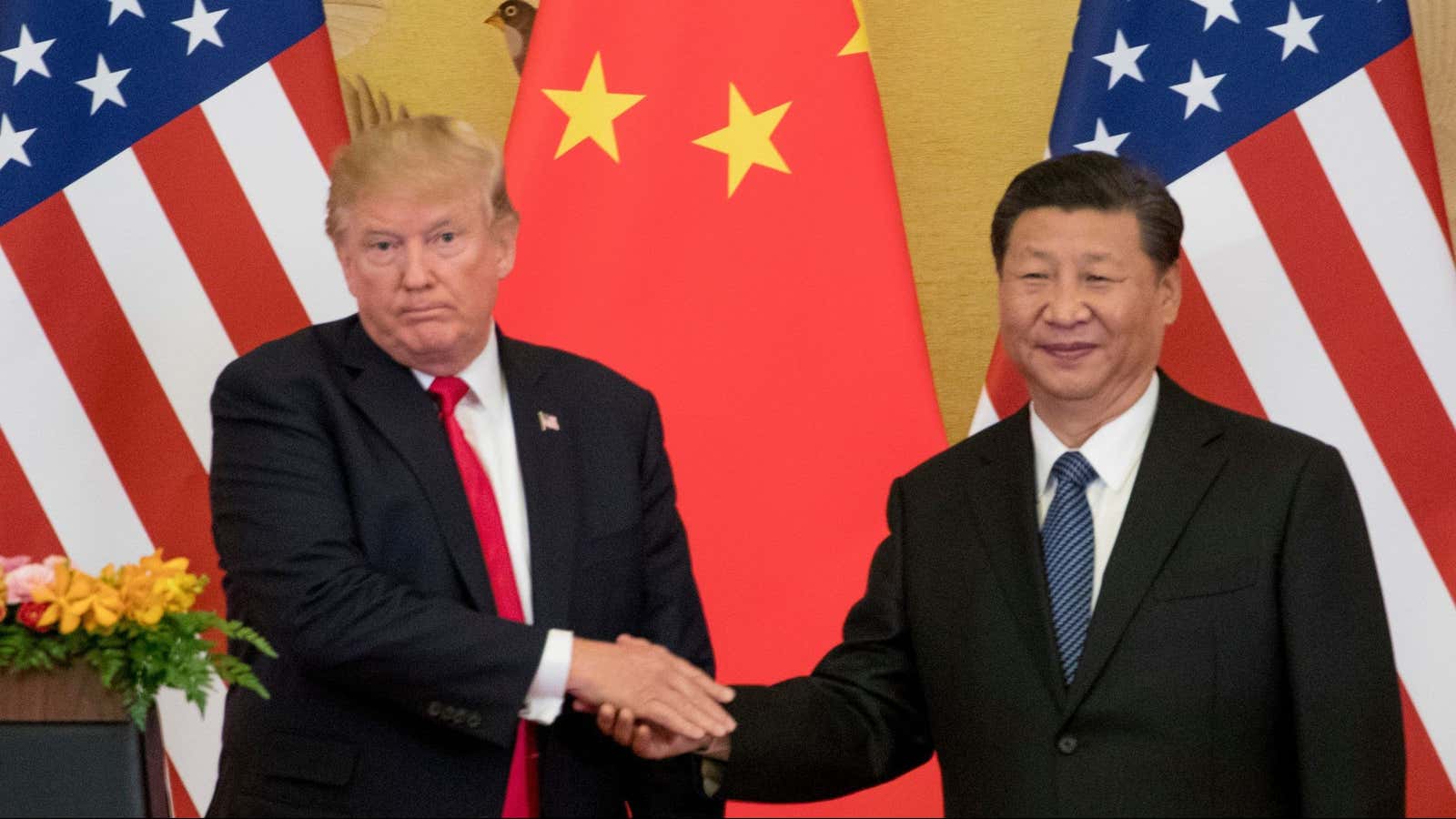Donald Trump’s tariffs on China are controversial. What isn’t is his rationale: that China is “cheating” with trade and industrial policies that put US companies at an unfair disadvantage.
Democrats like senators Bernie Sanders and Charles Schumer have chimed in to condemn Chinese government policies, as Jake Werner noted in Foreign Policy this week. Some of US politicians’ concerns relate to issues like intellectual property theft and the requirement that US companies share their technology as a condition of investing in China. But Americans’ biggest bugbear tends to be Made in China 2025, China’s state-run investment initiative to lead innovation in high-tech sectors like robotics, artificial intelligence, 5G networks, and electric vehicles. The goal of China’s industrial policy is to catapult its companies toward the more profitable parts of the value chain, rather than languishing in low-margin, labor-intensive assembly work. Pulling this off is critical, given the sharp slowdown in Chinese productivity growth.
US commentators’ near-unanimous condemnation of Made in China 2025 is bizarre. Sure, the policy could well hurt the market dominance of US corporate titans. But their fortunes have little to do with the well-being of most Americans. On the contrary, ordinary people everywhere will benefit from increased competition. And if the policy helps China become a rich nation, its value to the world economy will be as a consuming powerhouse, not the low-cost manufacturing powerhouse it is today.
Trump and others are right to fear for US competitiveness. But instead of blaming China’s economic management, the US president should look instead at his own. As the economist Mariana Mazzucato argues, the state has long been a crucial engine of innovation—including in the US. Consider today’s symbols of American ingenuity. Apple? Tesla? Google’s search algorithm? All of them benefited from early-stage federal funding. Government investment in technology and research help pioneer the shale gas revolution. Indeed, the government’s most vital role is in creating wholly new markets—taking risks that businesses find too big or iffy or long-term to take on, says Mazzucato in her 2014 book, The Entrepreneurial State. Think of the internet, nanotechnology, clean energy, biotechnology.
“The United States desperately needs politicians with the courage to swim against the tide of popular rhetoric and outline a bolder vision for the State’s dynamic role in fostering the economic growth of the future,” Mazzucato writes. Those certainly are qualities Trump aspires to—and so he might consider creating a national industrial policy himself. Then again, making America great again is a lot harder than simply trying to keep China ungreat.
